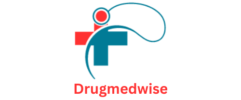Embarking on the journey to manage depression requires a nuanced understanding of medications designed to navigate the complexities of mental health. This comprehensive guide unravels the landscape of depression medications, providing insights into their mechanisms, uses, considerations, and the pathway they offer towards optimal relief and mental well-being.
Table of Contents
ToggleUnderstanding Depression Medications:
Managing depression often involves the use of medications that target neurotransmitters in the brain. This guide delves into the various classes of depression medications, shedding light on their roles in alleviating symptoms and fostering mental health.
Antidepressants form the cornerstone of depression treatment. This section explores the diverse classes of antidepressants, from SSRIs and SNRIs to tricyclics and MAOIs, delving into how each class affects neurotransmitter levels and contributes to symptom relief.
2. Anxiolytics in Depression Management: Unlocking Dual Relief:
In some cases, depression and anxiety coexist. This segment explores the role of anxiolytics in managing depressive symptoms, highlighting medications that address both conditions simultaneously and the considerations for their use.
For individuals with treatment-resistant depression, augmenting strategies become crucial. This section explores adjunctive therapies, including mood stabilizers, antipsychotics, and ketamine, providing a comprehensive view of their roles in enhancing the effectiveness of primary antidepressant treatments.

4. Personalizing Depression Medication Plans: Tailoring for Optimal Relief:
Tailoring medication plans to individual needs is pivotal in depression management. This part of the guide discusses the importance of personalized treatment, considering factors such as side effects, drug interactions, and individual response to medications.
Understanding the potential side effects and interactions of depression medications is essential for informed decision-making. This segment provides insights into considerations for use, potential side effects, and ways to manage and mitigate them.
6. Lifestyle Factors and Complementary Approaches: Holistic Well-Being Strategies for Depression Relief:
Beyond medications, lifestyle factors play a crucial role in depression management. This section explores how lifestyle modifications, therapy, and complementary approaches can complement medication strategies, fostering holistic mental well-being.
Conclusion: Your Guide to Optimal Depression Relief Strategies
Navigating the depths of depression medications requires a comprehensive understanding of the available options, their mechanisms, and their potential impact on individual well-being. By unraveling the complexities of depression treatment, individuals can embark on a journey towards optimal relief and mental well-being, guided by informed decisions and a holistic approach.
Explore the landscape of depression medications – your guide to a path of optimal relief and mental well-being.
Disclaimer: This article is for informational purposes only and should not replace professional medical advice. Consult with a healthcare provider for personalized guidance based on individual mental health needs.



